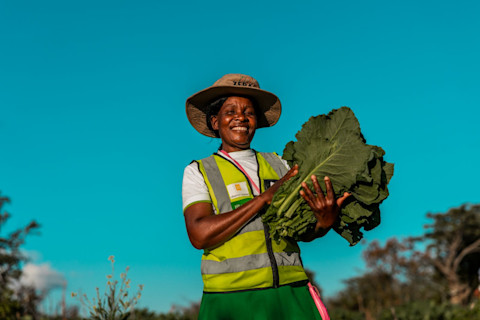Gardens are an act of hope. Every seed represents the belief that spring is on its way, and that it will be kind.
Gardens are also a testament to the resilience of their gardener. In this story, that gardener is our friend, Editor.
Three times a week, Editor walked 15 kilometers — more than nine miles! — to the nearest garden. The trip took three to four hours: a routine chore for the women and children of her community, but exhausting nonetheless. And no matter how often Editor walked, another journey always awaited her.
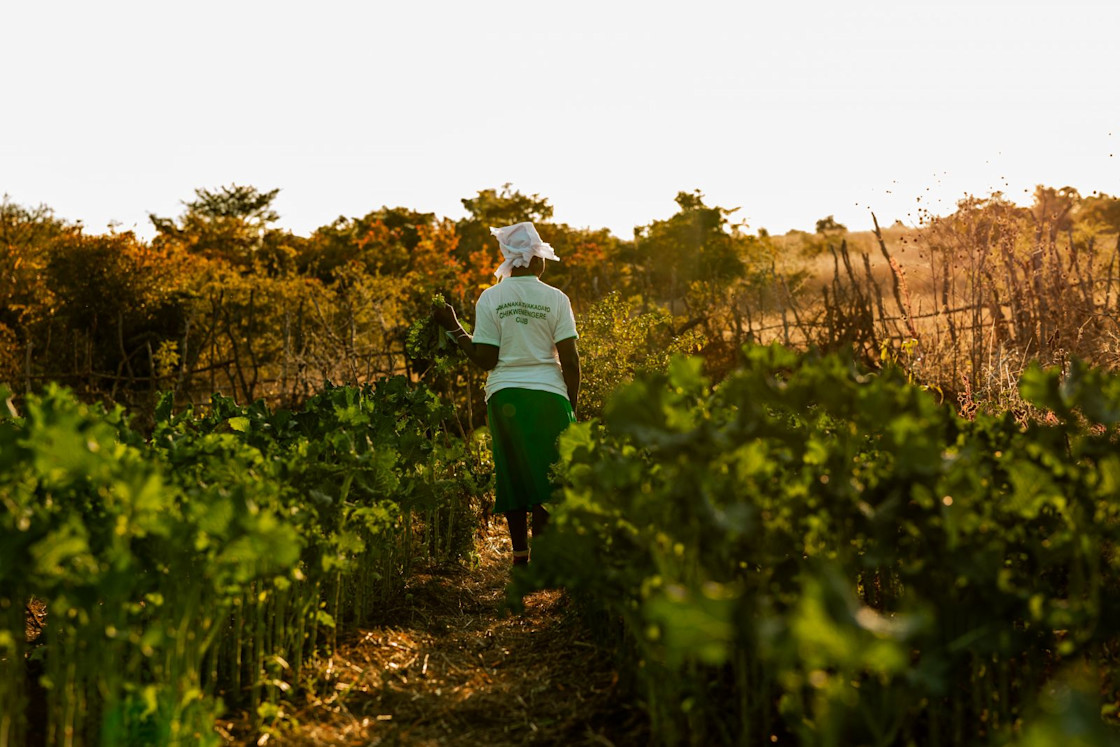
Dirty water slows economic growth and increases the likelihood of food insecurity.1
Many families in rural communities earn their income tending the land. The practice is generational, sacred, and a source of deep pride. But increasingly difficult.
Without sufficient water, families can’t expand their fields or herds to meet the needs of their growing families. This problem is exacerbated by an ongoing drought throughout the Horn of Africa: the worst ecological crisis it’s seen in 40 years.2 This cycle stifles families’ economic potential, keeping proper nutrition and primary education dangerously out of reach.
This is a familiar concern for Joseph, a key member of the District Water Supply and Sanitation Subcommittee. He’s been working to improve rural access to nutrition for the past 10 years.
“My profession is food security and sustainable agriculture,” he said. “If you have very good food without clean water, you’ll always be food insecure, because you’ll always be unhealthy.”
This was Editor’s story. An unceasing cycle of hunger and thirst. All because of dirty water.
Then, our local partner in Zimbabwe, Welthungerhilfe, rehabilitated her community’s local water point. Suddenly, all 92 households had the water they needed to drink, cook, clean, or bathe.
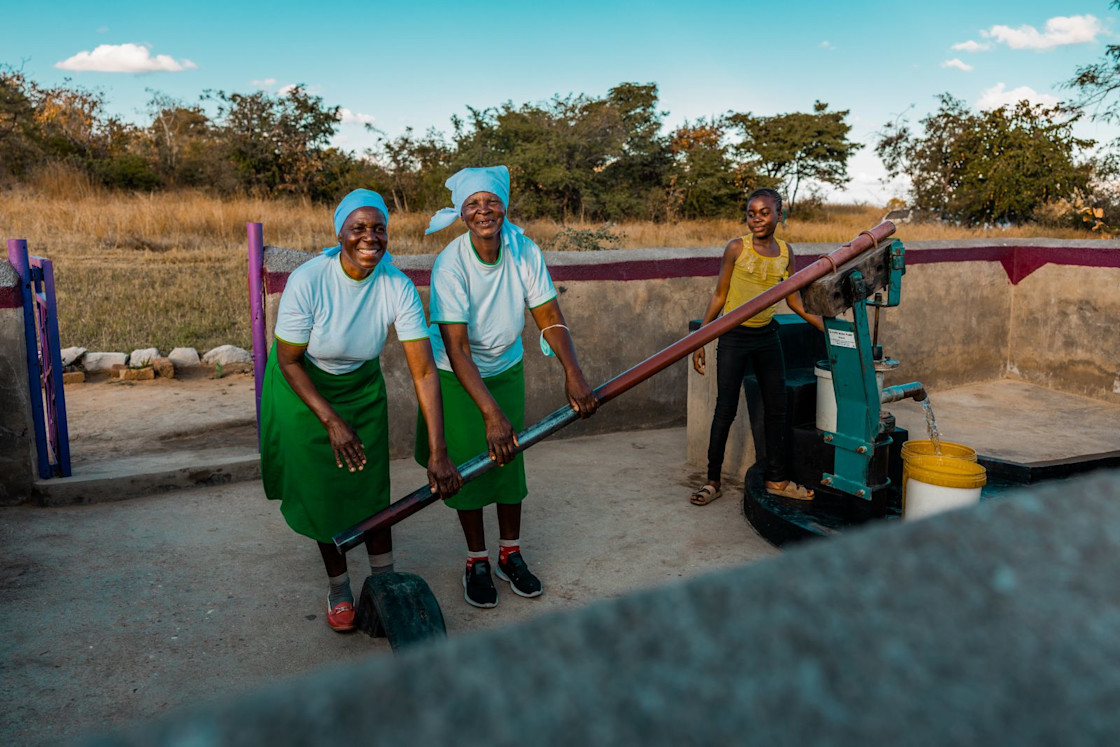
One vestige from the days of dirty water remained: the 15-kilometer walk to the nearest garden. Editor knew exactly what to do next.
After years of walking, Editor could have a garden of her own. Clean water had finally bridged the gap.
Shortly after the rehabilitation of their water point, Editor and her neighbors started a community garden. With sustainability in mind, they use runoff water from the well to water the plants. (Nothing wasted, and everything gained.)
“It’s motivating to talk about the garden. We are proud of the garden,” Editor said. “Only women are working in the garden.”
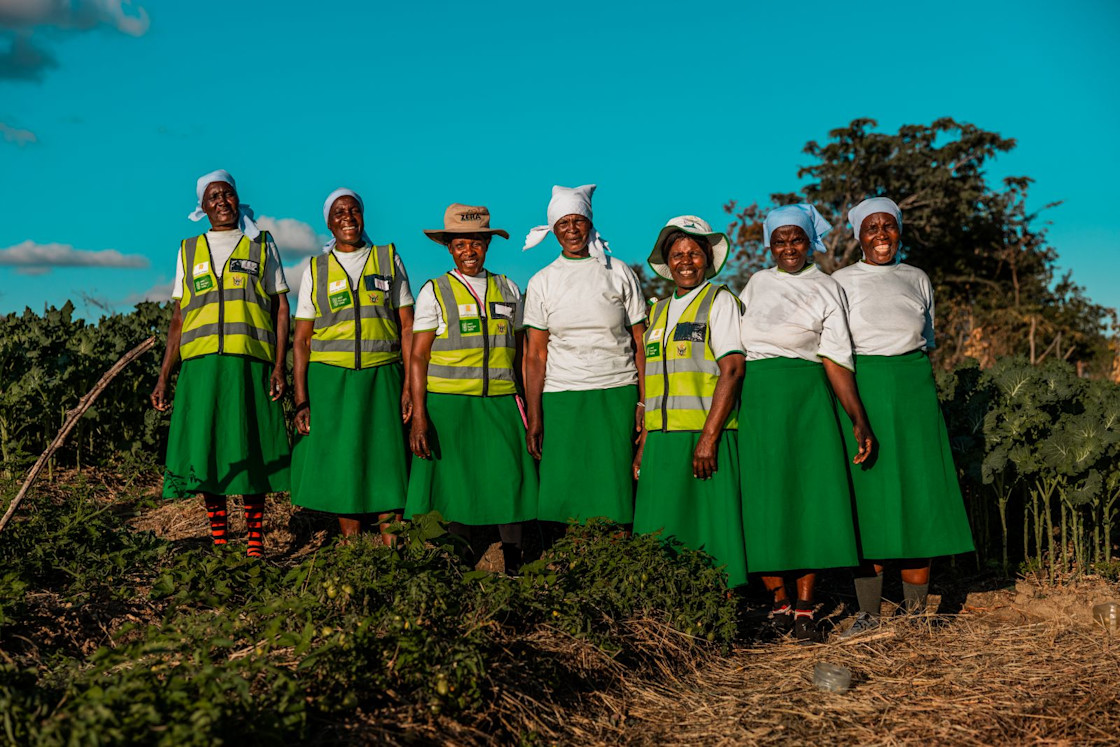
Her pride and passion were evident. The project has given Editor the opportunity to exercise her natural gift for leadership. She guides a team of about 10 gardeners, but their hard work benefits their entire community of 487 residents. The garden bursts with tomatoes, kale, carrots, peppers, onions, cabbage, and beans: a bountiful harvest.
“We sat down and agreed that we would help those who can’t help themselves. We took it upon ourselves to help our community. The elderly are being taken care of. The orphans are being taken care of. We have that spirit of giving here.”
When our staff visited, a member of the team purchased some sweet cabbage. (The star of a beloved family recipe passed down from her grandmother.) Without hesitation, Editor’s team gave her twice as much cabbage as she’d paid for.
Generosity in action. Compassion incarnate — or, more accurately, in cabbage.
We traveled to Zimbabwe in the summer of 2022. Since then, Editor’s team may have forgotten this simple act of kindness. We have not.
We haven’t forgotten the lesson of Editor’s garden, untamed and breathtaking. Between lush rows of towering plants, a silent invitation:
Smell the soil. Feel the sun. See what’s possible when women unite. Witness the joy and generosity and humility and growth. This, right here, is what’s changing the world.
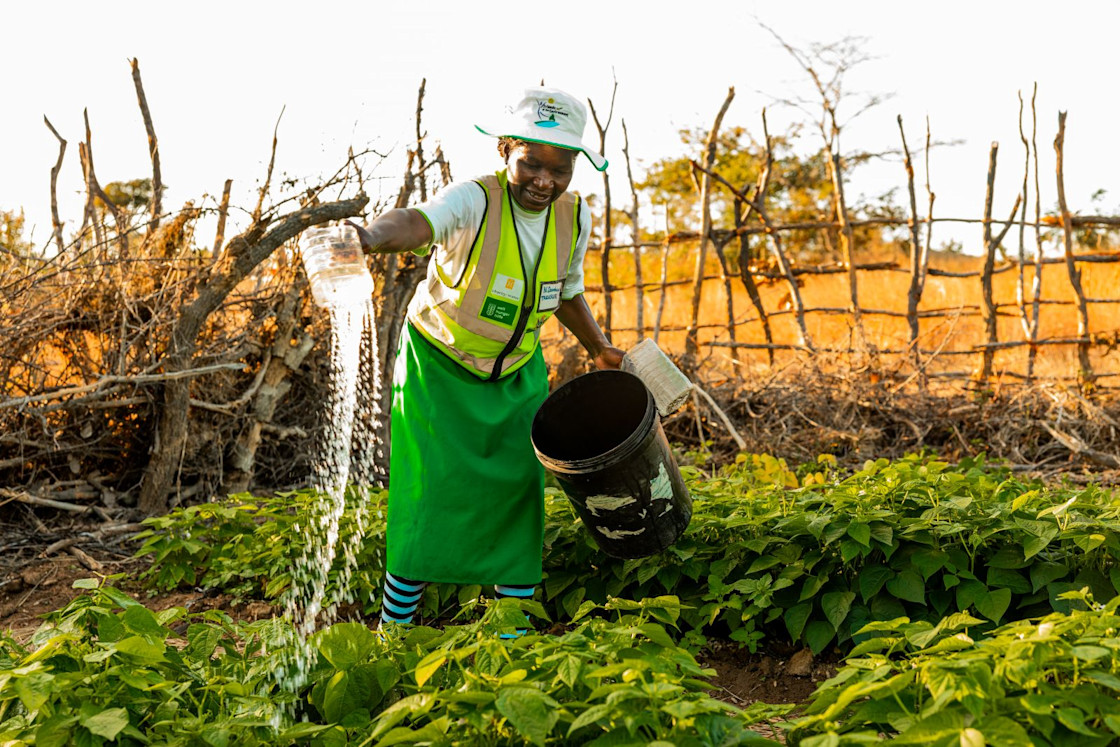
We’ve been working toward an end to the global water crisis since 2006. In that time, the world has experienced wars, economic collapses, displacements, and a pandemic. Our global community of supporters has funded clean water for 16.8 million people, but 703 million more are still drinking dirty water. The root causes of water scarcity — and dirty water’s ripple effect on poverty, malnutrition, and gender inequity — are multifaceted and complex.
And the more complicated the problem, the more tempting it is to complicate the solution. To delay our response. To do nothing.
After all — we tell ourselves — it’s a global crisis! What impact can one person really have?
I get it. (Just last week, I stood in the meat section at Trader Joe’s internally debating/agonizing over the ethics of farm-raised vs. wild-caught salmon.)
But nothing should stop us from trying our best. And nothing should convince us that simple solutions aren’t enough. Because nothing can diminish the collective power of daily acts of kindness.
After all, nothing stopped Editor.
She saw a need facing her community and did what she could. She gathered her friends and neighbors. Planted a garden. Helped it grow. Reaped the harvest. Fed the hungry.
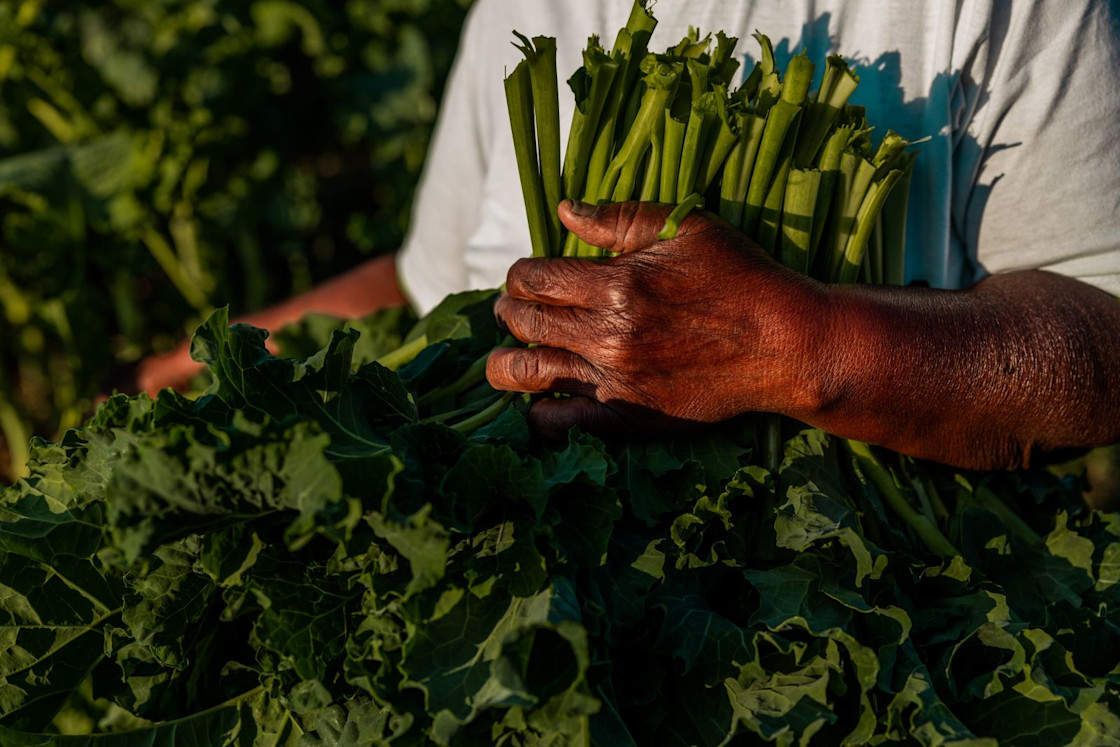
Like the seasons, this cycle of generosity and hard work will repeat itself again and again and again. As steadfast as the spring.
Wherever Editor’s harvest is enjoyed around tables — big and small, quiet and loud, blissful and bickering — the world will change for the better.
All because a woman named Editor decided to roll up her sleeves and get to work.
We believe we can see an end to the global water crisis in our lifetime. But the future is formed by our choices today. It begins now. With you and me and us. And Editor’s example gives us an excellent place to start.
When all is said and dug, it will be our individual actions (inspired by love for our neighbors) that create the changes we want to see in the world.
So, we end with an invitation just for you:
Smell the soil. Feel the sun. Gather your friends and neighbors around a common cause. See what’s possible when people unite. Witness the joy and generosity and humility and growth. You, right where you are, can change the world.
Editor’s story illustrates the positive impact women and girls have on their communities without the burden of dirty water. You can bring clean water to people like Editor each month. Join The Spring, our monthly giving community, to change lives for the better. Your gift could improve food security, access to education, and economic development.
100% of your donation will directly fund water projects.
1. The World Bank on Water
2. NASA: Worst Drough on Record Parches Horn of Africa and United Nations Framework Convention: Drought in Africa
Photos By: Cubby Graham

